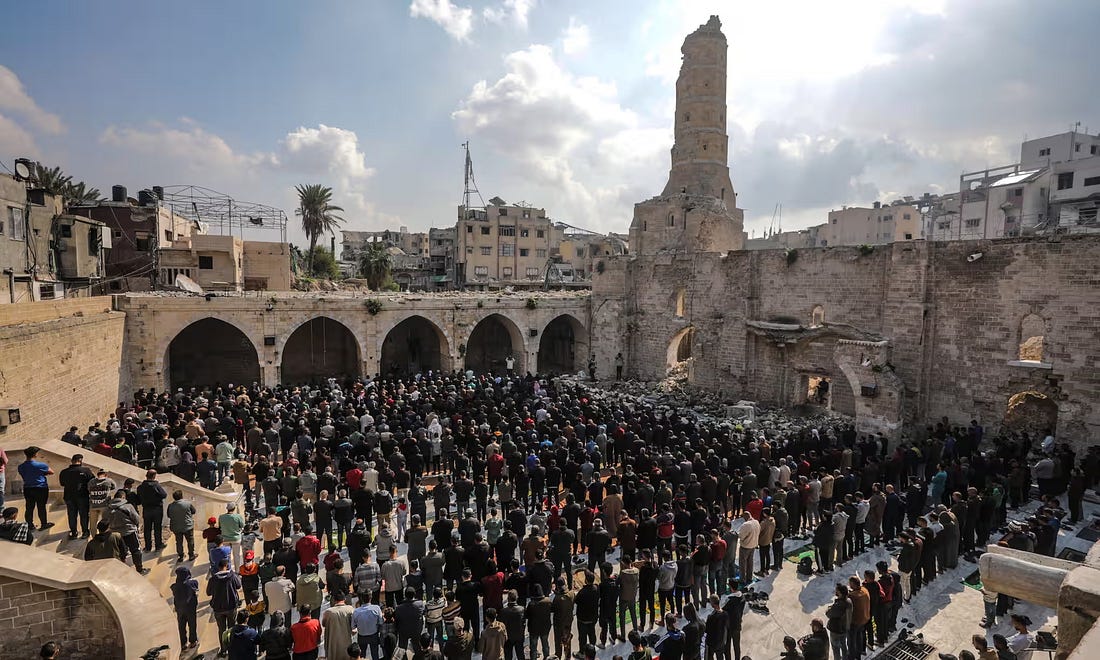|
Having recently expressed support for our bombing of Iran’s nuclear infrastructure, I’ve been reminded that my views about the ongoing conflict in the Middle East can seem perplexing. According to certain readers and podcast listeners, my thinking, while impeccable on other topics, has grown contorted by bias on this one. Some worry that my Jewish identity—and, by extension, an irrational attachment to the state of Israel—has caused me to avert my eyes from the horrors of Gaza. Several people have urged me to interview a prominent supporter of the Palestinian cause, so that I can confront an account of the war and the history of the region that paints Israel in a less flattering (and presumably more objective) light.
There may be a basis for some of this confusion: Since publishing my first book, The End of Faith, I have consistently criticized all forms of religious sectarianism. However, in the aftermath of October 7th, my thinking about Israel shifted—in response to the deluge of antisemitism, Holocaust denial, and moral perversity that burst the banks of the Internet and began seeping into every corner of culture. While I have no religious connection to Judaism, and have many misgivings about the current government of Israel, the global response to October 7th made me a Zionist. It is probably worth noting how far I’ve come on this point, for I once made the following statement on my podcast:
I don’t think Israel should exist as a Jewish state. I think it is obscene, irrational and unjustifiable to have a state organized around a religion. So I don’t celebrate the idea that there’s a Jewish homeland in the Middle East. I certainly don’t support any Jewish claims to real estate based on the Bible.
Though I just said that I don’t think Israel should exist as a Jewish state, the justification for such a state is rather easy to find. We need look no further than the fact that the rest of the world has shown itself eager to murder the Jews at almost every opportunity. So, if there were going to be a state organized around protecting members of a single religion, it certainly should be a Jewish state. Now, friends of Israel might consider this a rather tepid defense, but it’s the strongest one I’ve got. I think the idea of a religious state is ultimately untenable.
My opinion of religious sectarianism hasn’t improved, but I now believe that the concerns referenced in the second paragraph are overwhelming. Antisemitism is such a singular hatred, the Holocaust such a singular evil, and its denial such a singular insult, that defending Israel would be a moral necessity even if there were no other rationale for it.
But, of course, there is a more generic concern that has always governed my thinking about the conflict in the Middle East—and that is the omnipresent threat of jihadism. And on this topic there really should be no confusion about my views. Indeed, if one wanted to predict how I will judge the ethics of any future conflict, be it here on Earth or in some doomed colony on Mars, knowing whether jihadists are involved, and on which side, will suffice.
This is why the history of the Middle East is of no relevance to me—and why debating discrepant accounts of this history would be a waste of time (I’ll discuss Israel’s conduct of the war in a moment). My only concern is what people believe, and want, and judge to be sacred—now. Above all, I care about what people are willing to kill for. Beliefs about the past form some part of this inner landscape, but no account of history illuminates it. And no debate over what really happened in 1948, 1967, 2006, or in any other year will allow Palestinians and Jews to transcend their mutual grievances and hatreds. Everything that is worth knowing about this conflict can be learned from the behavior and utterances of ordinary people, on both sides, today.
And, as it happens, jihadists make no secret of their ambitions, however abhorrent. Most are as guileless and garrulous as a beauty queen the moment she is crowned. Just as there can be no doubt as to whether the lovely young lady from Tennessee wants a career in media, a large family, and peace on Earth, any Muslim fanatic who claims to “love death more than the Jews (or the infidels, or the Americans) love life” should be taken at his word...
Subscribe to Sam Harris to unlock the rest.
Become a paying subscriber of Sam Harris to get access to this post and other subscriber-only content.
A subscription gets you:
| Access to all posts | |
| Full-length episodes of the Making Sense podcast | |
| Post comments and engage with the community |
